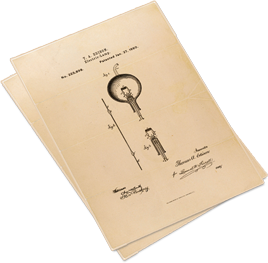A few months ago we reported on a case in which the U.S. Trademark Office had refused registration of THE SLANTS as a trademark for live musical performances as being disparaging of people of Asian descent. Last week the U.S. Supreme Court concluded that the basis for that refusal, the Trademark Act’s “disparagement clause”, was an unconstitutional violation of the First Amendment’s free speech provision as the trademarks themselves represent private speech, not government speech.
During examination of the trademark application, the Office alleged that the mark disparaged people of Asian descent and was offensive to a segment of the U.S. population. Even though the musical group who used the mark was itself Asian American, and the band member who applied for registration was Asian American, the Office’s decision to refuse registration comported with decades of U.S. trademark practice.
Closely related to this case is the series of cases in which a group of Native Americans had sought for years to stop the National Football League’s Washington Redskins from using the team name Redskins, and cancel the team’s trademark registrations, on the ground that the term “redskin” disparaged and demeaned Native Americans. In those cases, courts in various jurisdictions had rendered conflicting opinions for and against.
Now the U.S. Supreme Court has resolved the question for everyone in the United States, holding in an 8-0 decision that disparaging and contemptuous terms that may offend some are protected speech and that the government, here in the person of the U.S. Trademark Office, is constitutionally prohibited from “abridging the freedom of speech.” The decision concludes, “we hold that the disparagement clause [of the Trademark Act] violates the Free Speech Clause of the First Amendment.”
So, rather than being barred outright from registration, potentially disparaging and offensive marks may now be examined under the Trademark Act’s other criteria, including, perhaps, the prohibition of “scandalous” and “immoral” marks (which were not addressed in the decision), with an eye to, presumably, the limits of the First Amendment.


